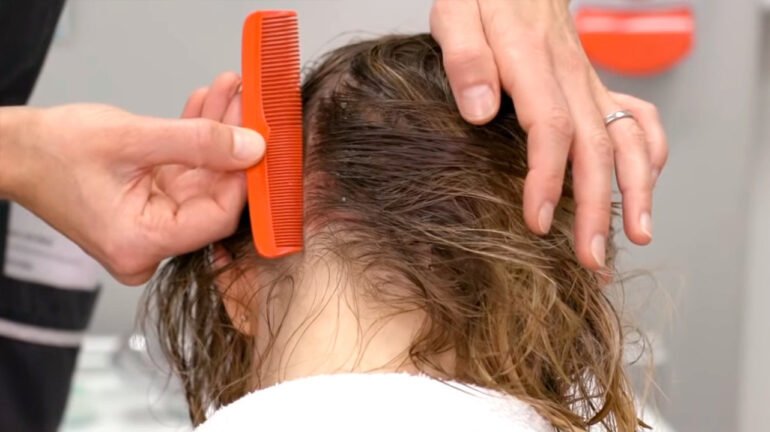Hair health is not only a reflection of your overall well-being but also a confidence booster. However, maintaining your hair’s health requires care and attention, especially when faced with the risk of hair loss. This article will explore the steps you can take to nurture your hair and the potential causes and solutions for hair loss.
The effect of stress on hair health
Three types of hair loss are commonly linked to high levels of stress:
- Telogen effluvium: This condition occurs when significant stress forces a large number of hair follicles into a resting phase. After a few months, the affected hairs may start shedding suddenly, often while combing or washing your hair.
- Trichotillomania: This disorder is characterized by an overwhelming urge to pull out hair from the scalp, eyebrows, or other body areas. Hair pulling often serves as a coping mechanism for dealing with negative emotions such as stress, frustration, tension, boredom, or loneliness.
- Alopecia areata: Thought to be triggered by a combination of factors, including severe stress, alopecia areata results when the body’s immune system mistakenly attacks hair follicles, leading to hair loss.
Fortunately, stress-related hair loss isn’t always permanent. Once stress is managed, hair may regrow. If you experience sudden or patchy hair loss, or notice more shedding than usual during combing or washing, it’s important to consult a doctor. Sudden hair loss could be a sign of an underlying medical condition that requires treatment, and your doctor can recommend appropriate solutions for hair loss if needed, to maintain hair health.
Hair loss
To maintain hair health, it is important to know the causes of hair loss. Hair loss can vary widely, from mild thinning to complete baldness, and it can occur for numerous reasons. Medically, hair loss is classified into different categories, such as:
Telogen Effluvium
A prevalent form of hair loss, typically occurring two to three months after significant physical stress, like a prolonged illness, major surgery, or severe infection. It can also result from a sudden hormonal shift, particularly in women after childbirth.
Hair falls moderately from all over the scalp and may be noticed on a pillow, in the bathtub, or on a hairbrush. While some areas of the scalp may appear thinner, large bald patches are uncommon.
Drug Side Effects
Certain medications can trigger hair loss as a side effect, including drugs like lithium, beta-blockers, warfarin, heparin, amphetamines, and levodopa (Atamet, Larodopa, Sinemet). Many chemotherapy medications, such as doxorubicin (Adriamycin), can also cause sudden, widespread hair loss affecting the entire scalp. To maintain hair health, avoid these medications.
Symptom of an Underlying Medical Condition
Hair loss can be a symptom of various medical conditions, such as systemic lupus erythematosus (lupus), syphilis, thyroid disorders (like hypothyroidism or hyperthyroidism), hormonal imbalances, or severe nutritional deficiencies, especially in protein, iron, zinc, or biotin. These deficiencies are often seen in people following restrictive diets or women with heavy menstrual bleeding.
Tinea Capitis (Fungal Scalp Infection)
This type of patchy hair loss occurs when fungi infect the scalp, causing hair to break near the surface and the scalp to become flaky or scaly.
Alopecia Areata
An autoimmune condition where hair falls out in small patches. The exact cause is unknown, but it is more prevalent in individuals with other autoimmune disorders. When this condition leads to total hair loss on the scalp. To maintain hair health, you must strengthen your immunity.
Maintaining hair health and preventing hair loss requires a combination of proper nutrition, gentle hair care, and attention to your overall well-being. By understanding the factors that influence hair health and addressing any underlying issues, you can keep your hair looking and feeling its best.
Our Categories
Helpful Links
Information
Copyright © 2023 Estel International


